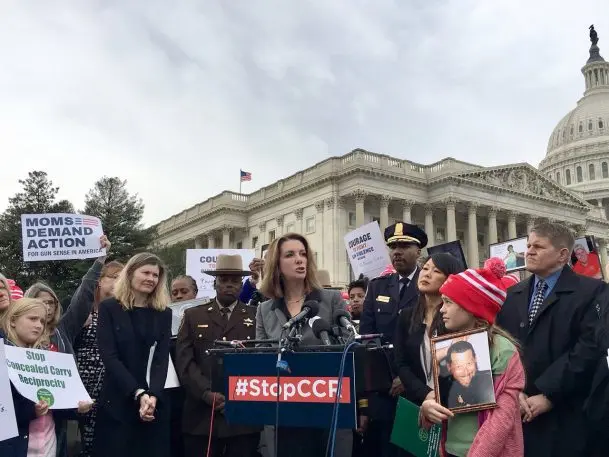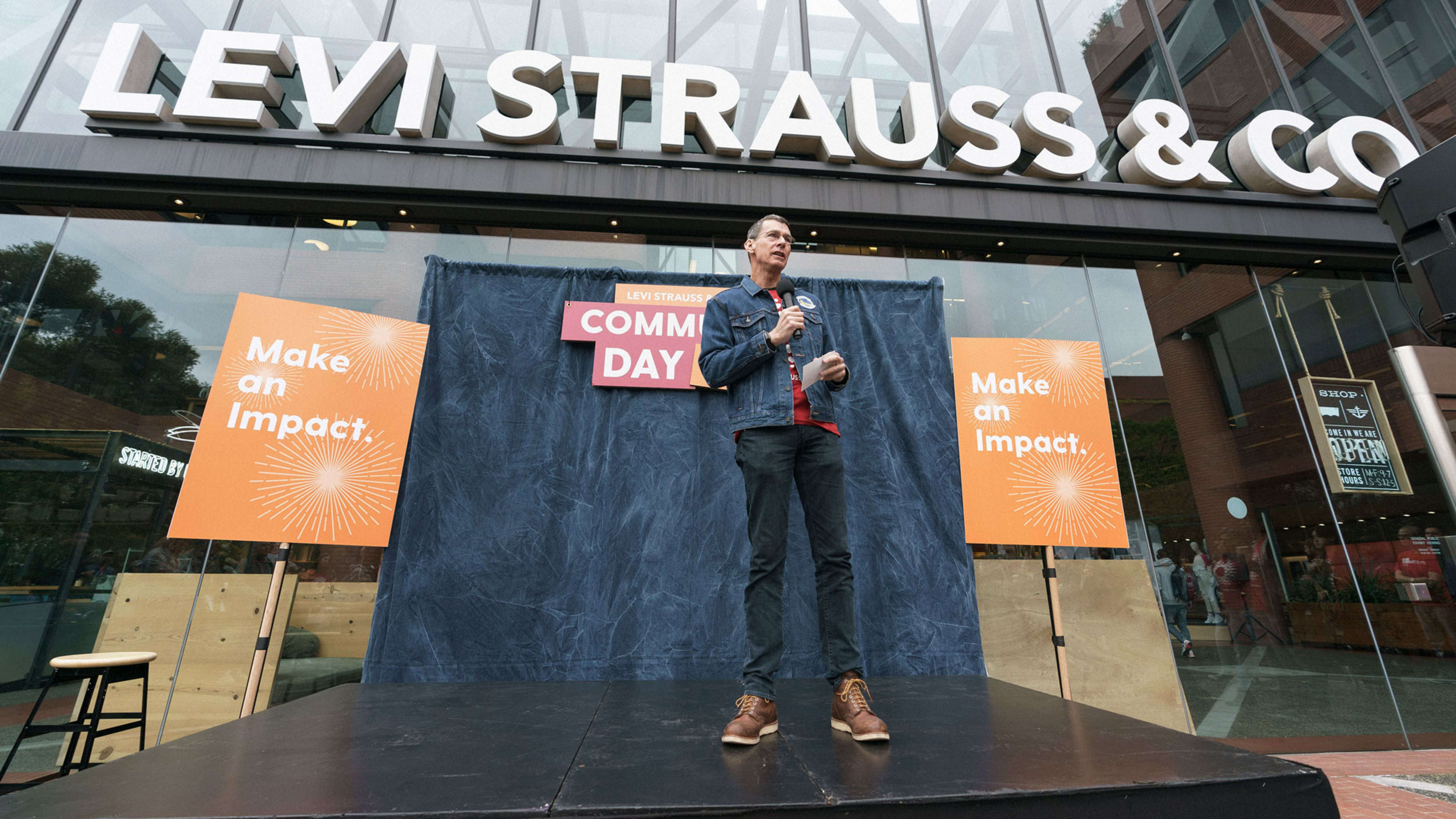It was a step that many other retailers–from Target to Starbucks–had already taken. But when the Parkland shooting happened in 2018, killing 17 students and teachers, Levi’s decided to go further. Bergh published a letter about the country’s epidemic of gun violence and the company set up a $1 million fund to support organizations that are working to put in place “common sense regulations or laws that would prevent guns being in the hands of people who shouldn’t own a gun,” he says.

As a father, Bergh says the situation had recently hit even closer to home for him. “My daughter goes to school in San Francisco, and they practice lockdown drills more than they do earthquake drills,” he says. “That says something about our country.” Predictably, when the company announced its support for gun control, some customers complained. But the company had taken similarly controversial stands in the past and was willing to weather any short-term impact. In 1992, for example, when it pulled its sponsorship from the Boy Scouts in response to the organization’s ban on gay troop leaders, it got more than 100,000 letters in response, most saying that they would boycott the brand.
“The company did not waver,” Bergh says. “Now, with the benefit of hindsight, you can honestly say we were on the right side of the issue . . . I really believe that 20 years from now, we’re going to look back and say this company was again on the right side of an important issue. I think it’s imperative that companies not be afraid to weigh in on the issues that are really impacting the world, whether that’s gun violence or climate change. If we stand on the sidelines, we’re not really fulfilling our full responsibility to the world.”
Bergh gets hate mail for the company’s position on gun control (much of which, he says, misunderstands that position: Levi Strauss isn’t interested in repealing the Second Amendment or taking away guns from most gun owners). It requires a thick skin, he says, to take on an issue like this. But the choice hasn’t had a negative impact on the business. The last fiscal year was the strongest in decades; the company has had double-digit top-line growth for six quarters, including the quarter after it announced its stand on gun control. When the company went public in March, it made it clear to investors that it would continue to take “bold stands,” he says. Investors, he thinks “are hungry for companies that have a strong moral compass and aren’t afraid to weigh in on these matters.”

At the company’s “community day” at its San Francisco headquarters in May, before employees headed out to volunteer with local organizations, Shannon Watts, the founder of Moms Demand Action–one of the gun-control organizations that Levi Strauss is supporting–spoke to a crowd of hundreds of workers. Watts told Fast Company that she’s seen a large shift in how willing companies are to step forward about guns. “When I started this work, and that was the day after the Sandy Hook school shooting in 2012, there were no companies that wanted to get involved in this issue,” she says. The organization had to fight to get companies like Target to ask customers not to carry firearms into stores. (Like Levi’s, Target employees don’t actively enforce this request.)

“This is about changing hearts and minds–or changing out the lawmakers who are in place who oppose this legislation that data shows will work to save lives,” she says. “That work is often a marathon, not a sprint. And so it’s going to take several election cycles to get there. But I have no doubt that this will happen in our lifetime, particularly with companies like Levi’s getting on board.”
Recognize your brand’s excellence by applying to this year’s Brands That Matter Awards before the early-rate deadline, May 3.
